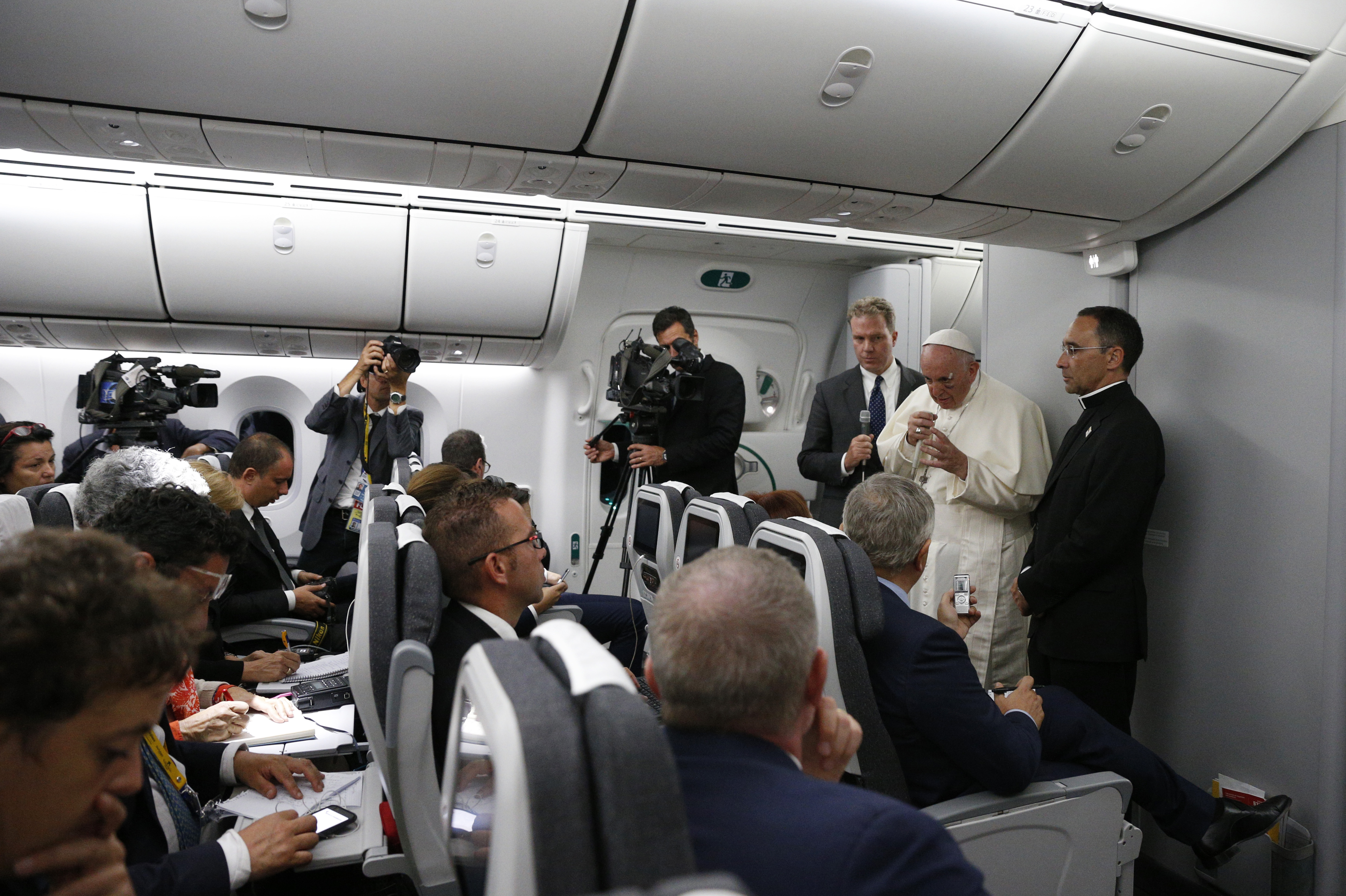
Pope Francis answers questions from journalists aboard his flight from Cartagena, Colombia, to Rome Sept. 10, 2017. (CNS/Paul Haring)
People need factual and trustworthy news that avoids sensationalism and whipping up heated reactions, Pope Francis said.
It is important the press not be "constantly at the mercy of easy slogans or improvised information campaigns, which show the intention of manipulating reality, opinions and people themselves, often creating worthless 'media dust storms,' " he told members of the press.
"Your voice — free and responsible — is fundamental for the growth of any society that wishes to call itself a democracy, so that the continuous exchange of ideas and a fruitful debate based on real and correctly reported information may be guaranteed," he said.
The pope spoke Dec. 16 with members of the Italian Periodical Press Union and members of the Italian Federation of Catholic Weeklies, which represents nearly 200 Catholic newspapers.
He praised in particular the value, necessity and effectiveness of diocesan weeklies, which he said require "a renewed commitment" from priests and the whole church community, and "kind attention from public authorities."
The Catholic press can be a useful tool of evangelization, Pope Francis said. It is a place where the life of a diocese can be "validly expressed" and where members of the church can "dialogue and communicate."
To work at a diocesan weekly means to listen to the local church, to live close to the people, and "above all to interpret events in the light of the Gospel and the teaching of the church. These elements are the 'compass' of its particular way of doing journalism, of reporting the news and expressing opinions."
However, all members of the press — Catholic and secular — have one of the most important tasks in today's world: "to inform correctly, to offer everyone a reporting of the facts that conform as closely as possible to reality" and to make complex problems and issues accessible to the most people possible.
The problem, he said, is the current situation is often dominated by overanxious speed, a drive to sensationalize to the detriment of offering a precise and complete story, and purposely whipping up emotions rather than fostering thoughtful reflection.
Given this situation, he said, "there is an urgent need for reliable information, with facts and news that have been verified," that does not aim for shock value or playing with people's emotions, "but rather sets its sights on fostering healthy critical thinking in readers, enabling them to ask appropriate questions and reach well-reasoned conclusions."
Advertisement
"There is an urgent need for news that is communicated with serenity, precision, completeness," clarity and thoughtfulness and in a way that favors "fruitful reflection" and rejects amplifying a discussion that is strident, ambiguous and insinuating, he said.
The people's right to information must be "scrupulously respected," together with protecting all people's dignity, he said.
"We must not fall prey to the 'sins of communication': disinformation, that is, giving just one side (of a story); slander, which is sensationalistic; and defamation," which is dredging up and shining a spotlight on things from the past that are outdated or have been dealt with or overcome, he said.
"They are very grave sins, which damage the heart of the journalist and harm people," he said.
Pope Francis said, "For all these reasons it is, therefore, desirable that everyone's commitment to ensuring the existence and vitality of these periodicals is not lacking," and that the jobs and dignified pay for people working in this field are protected.






